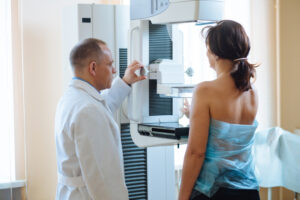Millions of women have routine mammograms for the purpose of identifying cancerous tumors in the breast. Now doctors are discovering how routine mammograms can detect your risk for heart disease and heart failure.
Number 1 Killer Of Women
One in seven women die of breast cancer, whereas one in three die from heart disease. Women start to have regular mammograms at age 40 and colonoscopies at 50, but with heart disease, women are only referred for screening if they have a strong family history. Yet, heart disease is the number one killer of women.
Screening for breast cancer using mammograms has saved thousands of lives. Now it may be possible to use the test to also screen for heart disease.
Finding A New Way To Fight Heart Disease

Besides cancerous tumors, mammograms also show breast arterial calcification known as BAC. Many women are told they have calcium deposits in their breast, but now this buildup of calcium inside the arteries of the breast indicates other possible risk factors.
Breast arterial calcification is related to the buildup of calcium in the coronary arteries known as CAC or coronary arterial calcification. This accumulation of sediment in the wall of the arteries which brings oxygenated blood to the heart is a red flag for cardiovascular disease. CAC is normally detected using an X-ray, cardiac computed tomography, or CT scan which can find a buildup of calcium in the walls of arteries.
Some early studies show BAC appears to signify a higher risk of heart attack, stroke, and other cardiovascular problems. Another study in the fall of 2019 concluded, “BAC may represent an early marker of vascular stiffness…and may be useful for identifying an increased risk for heart failure.”
Beyond Conventional Predictors
Conventional predictors use widely known risk factors like age, race, and cholesterol levels to predict a woman’s risk for developing heart disease. In the next 10 years it may be that adding non-cardiac tests like mammograms and bone density will help identify asymptomatic women at increased risk.
Another benefit is these two tests are already being done and require no additional radiation. Many doctors are excited there may be a new way to fight heart disease in women by addressing cardiac problems earlier in life.
Ask Southwest Diagnostic Imaging Center to identify breast arterial calcification in your next mammogram. We are always available to answer questions.
As always, if you have any further questions or would like to schedule an appointment, please call (214) 345-6905 today!

